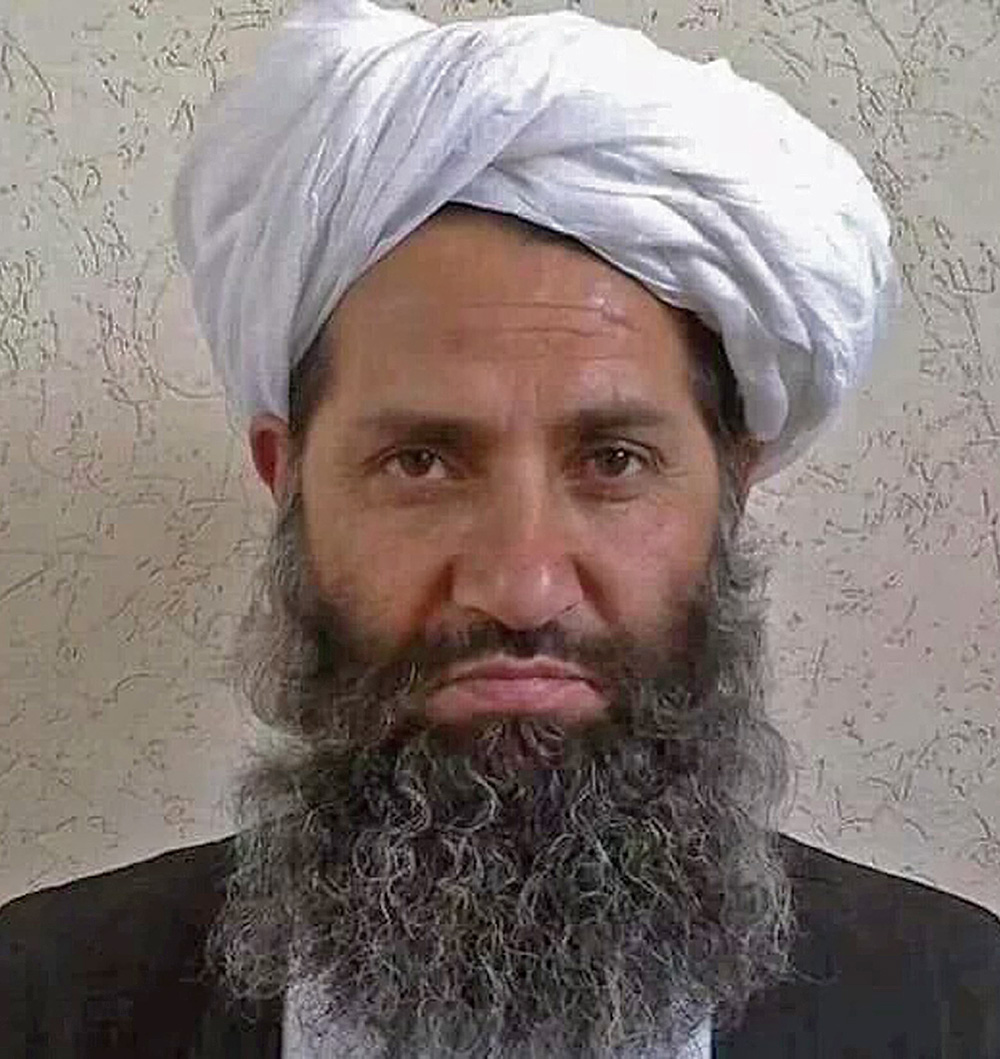KABUL: The Taliban on Sunday rejected a media report claiming that the group's chief, Mullah Hibatullah Akhundza, had been killed in a blast in Quetta, southwest Pakistan.
A prominent Afghan daily, Hashte Subh, citing anonymous sources, said on Sunday that the explosion had occurred in a safe house several months ago, killing Hibatullah, the group's intelligence head Matitullah and Hafiz Abdul Majid, their chief of finance.
The Quetta house, according to Hashte Subh, had been used as the main headquarters for Taliban leaders since their ouster in a US-led invasion of Afghanistan in 2001.
“This report is utterly fake and far from reality," Zabihullah Mujahid, a spokesman for the Taliban, told Arab News over the phone from an undisclosed location.
"We reject this report ... the enemy is under pressure and is trying to create worry through spreading such rumors,” he said. "Neither our leaders are in Pakistan nor such incident can be kept hidden."
Last year, an explosion ripped a mosque in Quetta, which according to press reports was used by Hibatullah. While Reuters back then reported that his brother, Ahmadullah, was killed by the blast, Hibatullah apparently had not been present in the mosque at that time.

This undated handout photograph released by the Afghan Taliban on May 25, 2016 shows, Mullah Haibatullah Akhundzada posing for a photograph at an undisclosed location. (AFP/File)
In May 2016, Hibatullah, 60, succeeded Mullah Akhtar Mansoor who was killed in a US drone strike near Quetta. Mansoor became the group's chief in 2015, after Mullah Mohammad Omar, the founder of the Taliban movement, died of an illness in a Pakistani hospital in 2013.
Haji Agha Lalai, a provincial council member of Kandahar, the birthplace of the Taliban movement and the group’s seat of power, told Arab News that he had heard that months ago some people wanted to see Hibatullah but "were not able to do so and instead a message attributed to him was read to them."
A senior Afghan security official in Kabul said on condition of anonymity that he had heard months ago that Hibatullah had been killed last summer, but he could neither confirm nor deny it.
There have been no statements by Hibatullah for months, despite ongoing intra-Afghan negotiations between the Taliban and Kabul government in Doha, Qatar, to end decades of armed conflict in Afghanistan.
The news about Hibatullah's reported killing comes amid a halt in the talks and plans by the new US administration to review its last year's agreement with the Taliban to withdraw all US-led NATO troops from Afghanistan by May.
The Afghan government insists that the troops remain and NATO members are set to discuss the forces withdrawal this week.
The Taliban, meanwhile, have repeatedly urged Washington to honor the deal signed by the previous US administration.
"Our message to the upcoming NATO ministerial meeting is that the continuation of the occupation and war is neither in your interest nor in the interest of your and our people," the group said in a statement on Saturday.
















